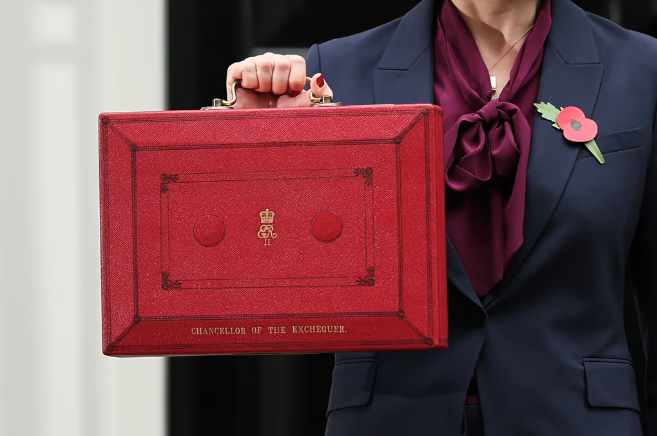
Explaining the pros and cons of gifting to clients
Inheritance tax (IHT) remains a major concern for clients, and changes announced in the Autumn 2024 Budget – which from 2027 will include bringing unused pensions and death benefits into a deceased’s estate for IHT purposes – have only added to the uncertainty.
So it’s no surprise that gifting – passing on cash gifts to relatives to reduce the value of their taxable estate – continues to be popular with clients with estates larger than currently frozen IHT allowances. As well as reducing their IHT liability, gifting also means they get to make a meaningful difference to the lives of their family while being alive to see it.
However, while gifting is a relatively simple way to reduce the value of a person’s taxable estate, the gifting rules are not so straightforward. Therefore, it’s worth making sure clients have a good understanding of the pros and cons of using gifting for estate planning, particularly as gifting may present additional IHT problems for the receiver of the gift later on.

What are the rules when making gifts?
Each tax year, everyone has a £3,000 annual gifting allowance, known as the ‘annual exemption’. This means gifts up to that amount can be passed on to one person or split between several people. An unused annual exemption can be carried over to the following year, but this can only happen for one tax year. Smaller gifts (no more than £250) can be given to as many different people as you wish every tax year, provided the recipients haven’t also received a gift as part of the £3,000 annual exemption.
Understanding Potentially Exempt Transfers
However, the rules get more complicated for larger gifts. If the gift is outside of a person’s annual exemption, it is called a ‘Potentially Exempt Transfer’ or PET. This means it may (or may not) become free from IHT depending on whether the giver survives for a full seven years after the gift was made.
If the giver dies within the first three years of making the gift, the gift will be subject to the full 40% rate of IHT after any nil-rate band has been used. In such cases, the value of the PET is added back to the value of the deceased’s estate, meaning that – depending on the size of the gift – it could use up some or all of their existing IHT nil-rate band. What’s more, any IHT bill due on the value of the gift must be paid by the recipient.
However, between three and seven years, taper relief progressively reduces the rate of IHT payable on gifts made in excess of the NRB by 8% each year – starting at 32% for gifts made three to four years before death, and reducing to 8% for gifts made six to seven years before death.
After a full seven years, the gift is no longer considered a PET and is no longer part of the deceased’s taxable estate, and the rate of IHT payable on the gift is reduced to zero.
 Gifting downsides
Gifting downsides
Aside from the seven-year ticking clock that clients who make gifts have to worry about, another downside to consider is the lack of control involved with giving money away. Having made a gift of their wealth, it is no longer theirs. This could become a problem if they need to rely on it at some point in the future, perhaps to pay for unexpected costs such as care home fees.
And what if that money has been used to pay off debt or used as a house deposit? If the receiver themselves no longer has access to the gift, it could make life difficult for everyone.
Are there better options for clients?
If gifting large sums away could cause financial problems later, or even risks leaving behind an uncomfortable IHT bill for beneficiaries to deal with, perhaps some clients would be better off retaining control over their wealth instead.
One alternative estate planning strategy would be to consider owning investments that qualify for Business Relief. Investments that qualify for Business Relief can become exempt from IHT after just two years, provided they are still owned at the time of death. This is clearly a much faster way of achieving IHT exemption compared to the seven-year wait before a gift becomes fully IHT-exempt.
Another advantage of an investment in Business Relief-qualifying companies is that the shares are held in the client’s name, and stay under their ownership for as long as they own them. This means clients can choose to sell the investment and have some – or all – of the money returned should they need it (although any money withdrawn from the investment would no longer be exempt from IHT).
Also, when the time comes, claiming Business Relief on the investment is a straightforward process carried out by the executor of the client’s will or the administrator of their estate. They simply need to contact the manager of the investment to act in accordance with the deceased’s wishes. This could include transferring the entire investment to beneficiaries, selling part or all of the investment and paying the proceeds to beneficiaries, or using some or all of the investment to pay an outstanding IHT bill due on the estate.
Understanding incoming Business Relief rates
In the 2024 Autumn Budget, the Chancellor announced changes to Business Relief that come into force in April 2026. From then, 100% IHT relief can only be claimed on the first £1 million invested in unquoted companies. The rate then reduces to 50% for amounts over that threshold. For companies listed on the Alternative Investment Market (AIM) that are eligible for Business Relief, the rate of Business Relief that can be claimed is reduced to a flat 50% regardless of how much is invested.
Therefore, it’s important to help clients understand how the new Business Relief rates will affect their decision on whether to invest in AIM-listed companies or unquoted companies, as well as how much IHT relief they can expect for their estate based on the amounts they plan to invest.
Triple Point: Here to help
At Triple Point, we understand that estate planning is a sensitive, and often complicated, subject. That’s why we have a range of estate planning client scenarios that set out specific client issues that can be solved using Business Relief. For more information, visit triplepoint.co.uk or ask your local Triple Point Business Development Manager for details.
Important information
Tax treatment depends on the individual circumstances of the investor and is subject to change. Tax reliefs depend on the investee companies maintaining their qualifying status. This article has been issued by Triple Point Administration LLP which is authorised and regulated by the Financial Conduct Authority no. 618187.
-1.png?width=234&height=72&name=tp-logo-navy%20(1)-1.png)

